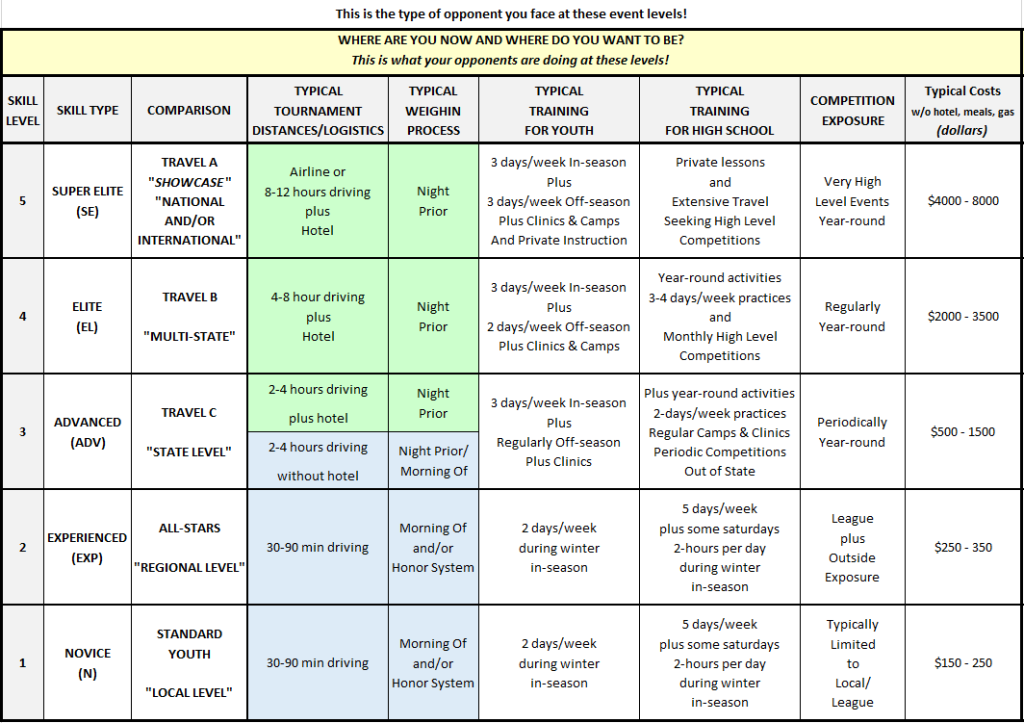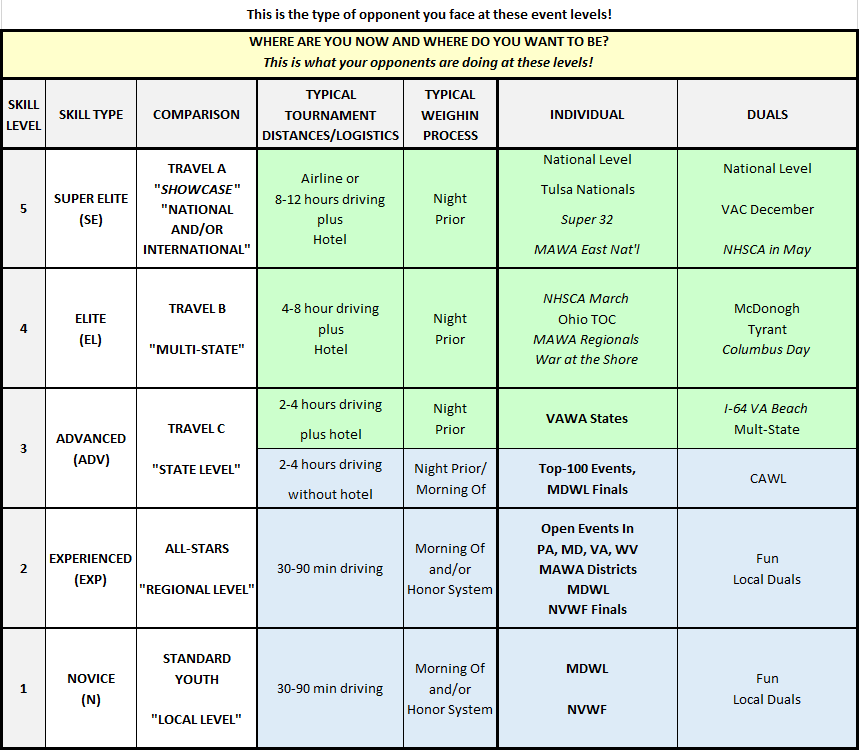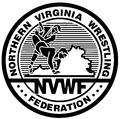The Progress Ladder Model
Developed by Bill Marck based on years of experience in youth sports activities.
The model shows what typical opponents are doing at skill levels 1-5 in terms of practices and competitions. This model was developed so parents and wrestlers know what to expect in terms of the quality of opponents at the next higher levels and what they do to remain competitive at those levels.
Anyone may enter any tournament, however, it is important for parents and wrestlers to have realistic expectations of what they will be facing at tournaments designated “or known” as a certain levels. Most tournaments are not generally advertised as a certain skill level so it is important that parents talk to their coaches and peers to understand what to expect when entering a particular tournament.
In general terms, wrestlers should get exposed to tournaments at levels higher than their own skill level periodically. There are two different philosophies about entering tournaments.
(1) some enter high level tournaments regularly thinking their athletes will eventially acclimate to those types of conditions, however, this can be very discouraging over time if they are not ready.
(2) many enter parents enter their athletes at the next level when they regularly win about 30% of the time.
The term “typical costs” depict what wrestlers and their families pay per year to practice and compete at a given skill level. The costs typically include costs for clinics, camps, private lessons, and tournament entrant fees. The costs seen below do not include hotels, meals, and travel expenses which would be additional expenses.

- Super Elite ~ events where all wrestlers are year-round in folkstyle and freestyle with 4+ years of experience plus camps and personal training.
- Elite ~ events where most of the wrestlers are year-round in folkstyle and freestyle with 4+ years experience plus attend camps.
- Advanced ~ events where wrestlers typically have 4+ years of prior experence (the horizontal line denotes a point where hotel may be needed).
- Experienced ~ events where wrestlers are strong athletes with 2+ years of prior experience.
- Novice ~ events where wrestlers are typically in their first or second year of wrestling.
- Event or league skill level merely shows the median (note: there will be kids with skill levels above and below the stated level).
- Hotels typically become necessary for weighins the night prior to advanced tournaments.
- The term “typical” describes what most of the wrestlers at this level are willing to do to compete at these levels.
- Training denotes the quality of practices, instruction, and partners clubs provide in order to compete at this skill level.


